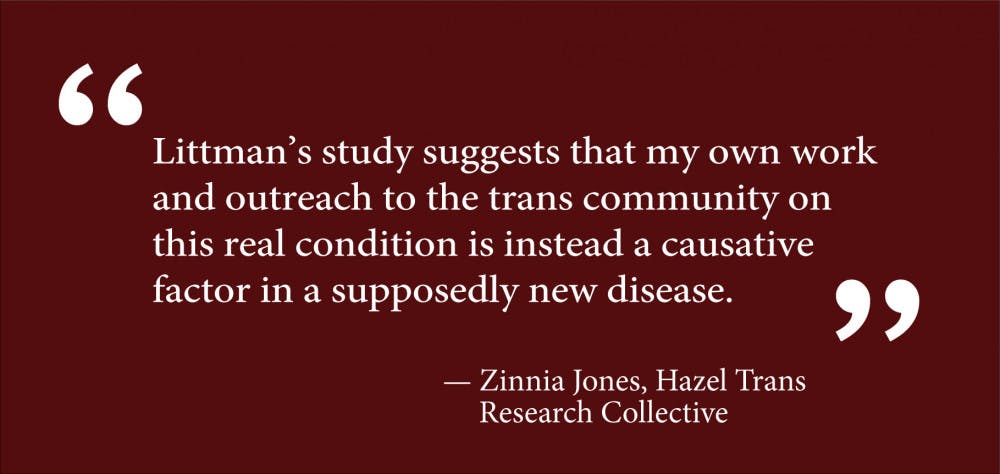To the Editor:
I am writing in reference to a Herald article, “Gender dysphoria study criticism,” published Sept. 4. Much of the backlash following the removal of a press release on Assistant Professor of the Practice of Behavioral and Social Sciences Lisa Littman’s “rapid onset gender dysphoria” study has focused on questions of academic freedom and institutional support for faculty who conduct controversial research. In these discussions, the actual content and underlying soundness of this research have largely been considered an afterthought. For me, however, the content of the study could not be more relevant.
Littman’s study directly quotes an article I wrote in 2013 on my experiences of gender dysphoria as a transgender woman. She labels such experiences “vague and nonspecific symptoms called signs of (gender dysphoria)” and implicates my work in her theory that online forums allow transgender identities to spread among the youth like “social contagion.” This could not be further from the truth. The symptoms I described are those of depersonalization disorder, a known condition of ‘feelings of unreality’ that is disproportionately common among trans people and often remits following transitioning. It strains belief that Littman would be unaware of the research on this disorder in trans people.
As a result of this oversight, her study suggests that my own work and outreach to the trans community on this real condition is instead a causative factor in a supposedly new disease. This is more than a question of academic freedom. It is a matter of academic responsibility — and in her misrepresentation of my work, Littman has failed to exercise that responsibility.
Zinnia Jones
Hazel Trans Research Collective




